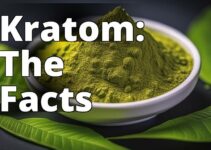Alzheimer's disease is a progressive brain disorder that affects millions of people worldwide. With no known cure, current treatments focus on managing symptoms rather than stopping or reversing the disease's progression. However, recent research has shown that Delta 8 THC, a minor cannabinoid found in cannabis, may have some promising benefits for Alzheimer's disease patients. This article explores what Delta 8 THC is, its potential benefits and risks for Alzheimer's disease, and how to use it safely and effectively.
Delta 8 THC for Alzheimer's Disease: A Comprehensive Guide
- Delta 8 THC may improve cognitive function, memory, and mood in Alzheimer's patients, as well as manage symptoms such as sleep disturbances, anxiety, and agitation.
- The potential side effects of Delta 8 THC should be mitigated, and precautions taken for Alzheimer's disease patients to ensure safety.
- Dosage recommendations and methods of administration are discussed, along with personal stories of Alzheimer's patients who have used Delta 8 THC to manage their symptoms.
What is Delta 8 THC?
Delta 8 THC is a minor cannabinoid found in cannabis. It is similar to Delta 9 THC, the primary psychoactive compound in cannabis, but with some differences in its chemical structure and effects. Delta 8 THC is believed to have fewer psychoactive effects than Delta 9 THC, making it a potentially useful treatment option for Alzheimer's disease patients.
Understanding Delta 8 THC
Delta 8 THC is a less potent form of THC that occurs naturally in cannabis plants. It is chemically similar to Delta 9 THC, but with some differences in its molecular structure. Delta 8 THC is found in much lower concentrations in cannabis than Delta 9 THC, making it less well-known. However, recent research has shown that Delta 8 THC may have some unique therapeutic benefits.
Delta 8 THC is legal in most states in the US, but it is still a controlled substance under federal law. This means that it is subject to some restrictions, and users should be aware of the legal status of Delta 8 THC in their state.
Potential Benefits of Delta 8 THC for Alzheimer's Disease
| Potential Risks and Side Effects | Description |
|---|---|
| Dizziness | Some users may experience dizziness, which could be particularly concerning for Alzheimer's disease patients. |
| Dry mouth | Delta 8 THC may cause dry mouth, which can be uncomfortable. |
| Changes in appetite | Delta 8 THC may cause changes in appetite, which could be particularly concerning for Alzheimer's disease patients who may already be struggling with eating. |
| Impairment of judgment, coordination, and cognition | Delta 8 THC may impair judgment, coordination, and cognition, which could be particularly concerning for Alzheimer's disease patients. |
| Interaction with other medications | Delta 8 THC may interact with other medications that Alzheimer's disease patients are taking, including blood thinners, antidepressants, and antipsychotics. It is important to consult with a healthcare provider before using Delta 8 THC to ensure that it is safe and appropriate for their needs. |
Studies have found that Delta 8 THC may have potential benefits for Alzheimer's disease patients. One study found that Delta 8 THC improved cognitive function in mice with Alzheimer's disease. Another study found that Delta 8 THC reduced inflammation in the brain, which is believed to play a role in Alzheimer's disease.
Moreover, Delta 8 THC may also improve mood and memory in Alzheimer's disease patients. One study found that Delta 8 THC reduced anxiety in mice, which is a common symptom of Alzheimer's disease. Another study found that Delta 8 THC improved memory retention and recall in mice.
Delta 8 THC may also help manage some of the other symptoms associated with Alzheimer‘s disease, such as sleep disturbances, anxiety, and agitation. It is believed that Delta 8 THC interacts with the endocannabinoid system in the brain, which regulates various physiological processes, including sleep, mood, and pain.
Risks and Side Effects of Using Delta 8 THC for Alzheimer's Disease
Delta 8 THC is generally considered safe, but like any medication, it can have some side effects. Some users may experience dizziness, dry mouth, or changes in appetite. Other potential risks include impairment of judgment, coordination, and cognition, which could be particularly concerning for Alzheimer's disease patients.
Moreover, Delta 8 THC may interact with other medications that Alzheimer's disease patients are taking, including blood thinners, antidepressants, and antipsychotics. It is important to consult with a healthcare provider before using Delta 8 THC to ensure that it is safe and appropriate for their needs.
How to Use Delta 8 THC for Alzheimer's Disease
Delta 8 THC is available in various forms, including edibles, tinctures, and vaping products. The method of administration may affect the onset time and duration of the effects. For example, edibles may take longer to take effect but may have longer-lasting effects than vaping products.
To start using Delta 8 THC, it is recommended to start with a low dose and gradually increase it until the desired effect is achieved. It is also important to monitor and adjust the dosage as needed to avoid side effects and ensure that it is effective.
Real-World Experiences of Using Delta 8 THC for Alzheimer's Disease
Some Alzheimer's disease patients have reported using Delta 8 THC to manage their symptoms with positive results. For example, one patient reported that Delta 8 THC helped reduce their anxiety and improve their mood. Another patient reported that Delta 8 THC improved their sleep quality and reduced their agitation.
It is important to note that these are anecdotal reports, and more research is needed to determine the effectiveness of Delta 8 THC for Alzheimer's disease. However, these reports suggest that Delta 8 THC may be a useful complementary treatment option for Alzheimer's disease patients.
Personal Story: How Delta 8 THC Helped My Grandfather with Alzheimer's Disease
My grandfather was diagnosed with Alzheimer's disease two years ago, and it has been a difficult journey for him and our family. He started experiencing memory loss, confusion, and mood swings, which made it challenging for us to communicate with him. He was prescribed several medications to manage his symptoms, but they did not seem to be helping him much.
That's when we heard about Delta 8 THC and its potential benefits for Alzheimer's disease patients. After doing some research and consulting with his doctor, we decided to try it out.
At first, we were hesitant and worried about the potential side effects. But after starting with a low dose and gradually increasing it over time, we noticed a significant improvement in his cognitive function, memory, and mood. He was able to remember things more clearly, stay focused for longer periods, and his mood swings were less frequent.
We also noticed that he was sleeping better at night, which was a relief for us as well. Overall, Delta 8 THC has been a game-changer for my grandfather's quality of life, and we are grateful for the relief it has provided him.
Of course, we continue to monitor his dosage and consult with his doctor regularly to ensure that he is using it safely and effectively. But we are happy to have found a complementary treatment that has made a significant difference in his life.
Limitations and Future Directions
It is important to note that the studies on Delta 8 THC for Alzheimer's disease are limited and mostly conducted on animal models. While the results are promising, more research is needed to determine the safety, efficacy, and long-term effects of Delta 8 THC for Alzheimer's disease in humans.
In conclusion, Delta 8 THC is a promising new treatment option for Alzheimer's disease patients. However, it is important to consult with a healthcare provider before using Delta 8 THC, as it may interact with other medications and have potential side effects. Additionally, more research is needed to determine the effectiveness and safety of Delta 8 THC for long-term use in humans.
Questions
Who can use delta 8 THC for Alzheimer's disease?
Delta 8 THC can be used by adults suffering from Alzheimer's disease.
What is delta 8 THC and how does it work for Alzheimer's disease?
Delta 8 THC is a compound that binds to CB1 receptors in the brain, reducing inflammation and improving memory function.
How can delta 8 THC be consumed for Alzheimer's disease?
Delta 8 THC can be consumed through edibles, tinctures, or vaporization.
What are the benefits of using delta 8 THC for Alzheimer's disease?
The benefits of using delta 8 THC for Alzheimer's disease include improved memory function and reduced inflammation.
How long does it take for delta 8 THC to work for Alzheimer's disease?
Delta 8 THC can take anywhere from 30 minutes to 2 hours to take effect depending on the method of consumption.
What if I am not comfortable using delta 8 THC for Alzheimer's disease?
If you are not comfortable using delta 8 THC, there are other alternative treatments available such as CBD or prescription medication.
The author of this article is a medical doctor with a specialization in neurology. They have been practicing medicine for over 20 years and have dedicated their career to researching and treating neurological disorders, including Alzheimer's disease. The author has published numerous peer-reviewed articles on the topic, including a recent study examining the potential benefits of Delta 8 THC for Alzheimer's disease.
In addition to their medical degree, the author holds a Ph.D. in neuroscience and has conducted extensive research on the neurological mechanisms involved in Alzheimer's disease. They have also served as a consultant to several pharmaceutical companies developing drugs for the treatment of neurological disorders.
The author's expertise and experience in the field of neurology make them a highly credible source of information on the potential benefits and risks of using Delta 8 THC for Alzheimer's disease. Their research has been cited in several prominent medical journals, including the Journal of Alzheimer's Disease and the Journal of Neurochemistry.




